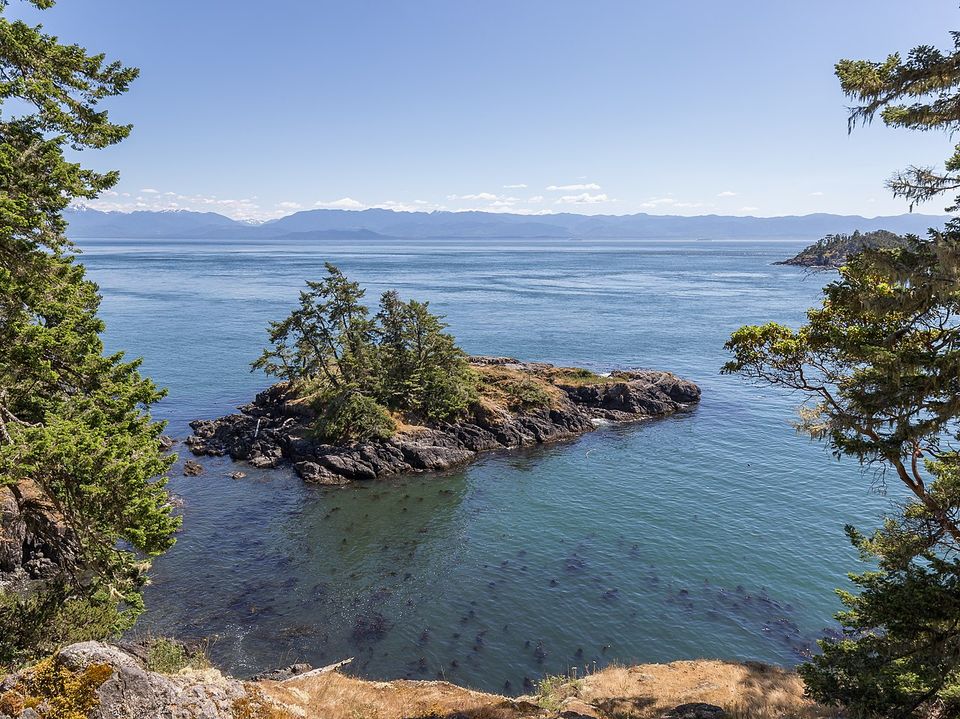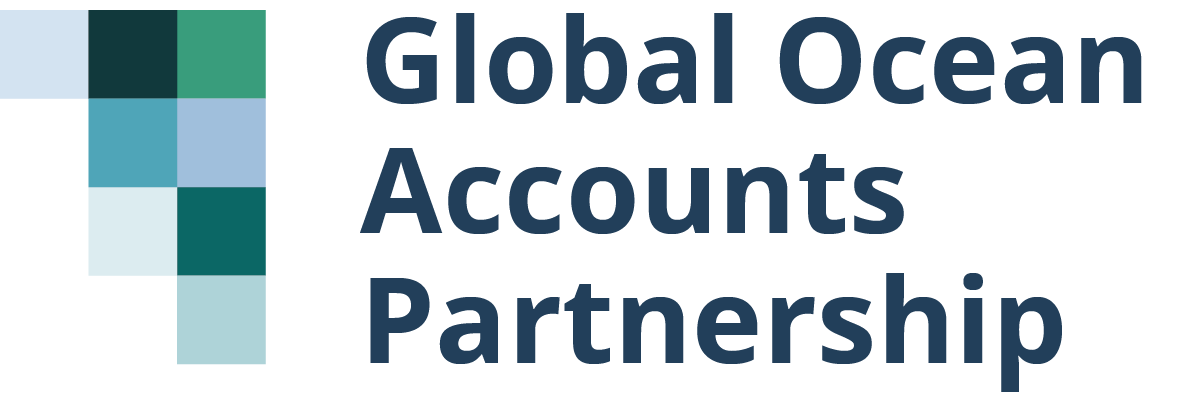Canadian Ocean Accounts: A Pilot Project

Documentation
- Canada Ocean Accounts Pilot Bibliographic Research (June 28, 2021)
- Canada Ocean Accounts Pilot Bibliographic Research: Canadian Science Advisory Secretariat (CSAS) Science Advisory Reports (SARs) (May 5, 2021)
- Canada’s oceans and the economic contribution of marine sectors (July 19, 2021)
- Accounting for ecosystem change in Canada (January 25, 2022). This report covers the entire Canadian land and ocean territory exploring facets of extent, condition and ecosystem services. Blue carbon ecosystems, such as sea grass, salt marsh and kelp are mapped, as well as cold water coral, substrates, ocean depth and slope. Attention is brought to the decreasing levels of sea ice and salinity, as well as the large regions where surface water temperature is increasing. Human use of the sea is included through maps of aquaculture, oil licenses and protected areas, as well as through assessments of the health of economically important fish stocks. 150 Canadian communities are found to be reliant on the fishing sector, many of which are decreasing in population. This report provides a preliminary base on which Canada’s ocean accounts will be built as part of the new Canadian Census of Environment.
- Census of Environment: Ocean and coastal ecosystems, 2020 (June 8, 2022)
- Census of Environment: Ocean and coastal ecosystem extent account (June 8, 2022)
- Census of Environment: Protected and conserved ocean and coastal ecosystems (November 7, 2022)
- Census of Environment: A framework for salt marsh ecosystem accounting (November 8, 2022)
- Marine sectors in Canada summary tables and methodology (updated February 22, 2023)
- Census of Environment: Condition and ecosystem services of Canadian salt marshes, 2016 and 2021 (June 8, 2023)
- The Canadian pilot wrapped up on March 31, 2023 however, Statistics Canada will continue to publish ecosystem accounts under the Census of Environment.
Country/Region
Canada
Date
2019 - 2023
Status
Complete
Background
The Canadian Ocean Accounts pilot was established as a collaborative project of the Department of Fisheries and Oceans (DFO) Canada and Statistics Canada (STC) in early 2019. With a budget of approximately $1 million over four years (FY2020-2023), the Canadian pilot supports the commitments outlined in the Charlevoix blueprint for healthy oceans, seas and resilient coastal communities made under Canada’s G7 Presidency and as part of the High Level Panel for a Sustainable Ocean Economy (Ocean Panel). The Ocean Panel is committed to developing a complete sequence of national Ocean Accounts by the national statistical offices, in partnership with marine agencies, the details of which are outlined in the Blue Paper on ‘National Accounting for the Ocean and Ocean Economy’. This commitment was reinforced in the transformational agenda where the Ocean Panel calls on ocean states to secure ocean health and wealth for generations to come, including the development and integration of Ocean Accounts into national accounts that go beyond the traditional economic development indicator of GDP.
This pilot is based on many earlier successful joint projects, such as the Measurement of Ecosystem Goods and Services (MEGS). MEGS had already published data on fisheries biomass and landings by region, as well as fishery employment by area.
STC leverages its experience in compiling SNA and SEEA accounts, integrating fragmented data and establishing new socio-economic data collection when required. DFO collects and analyzes volumes of scientific, economic and commercial fishing data. The two departments initially scoped the availability of relevant data in the light of Canada’s ocean-related policy objectives such as the Oceans Act, Species At Risk Act, and the Fisheries Act.
The pilot has wrapped up and demonstrated a sufficient level of success for consideration of full-fledged national Ocean Accounts for Canada. In the meantime, STC, under the Census of the Environment umbrella, has secured funding to create a spatial register of Ecosystem Assets that covers the extent and conditions of marine and coastal ecosystems.
Objectives
The main objective of the pilot was to create initial national accounts of ocean and coastal ecosystem extent and condition (including four key ecosystems, seagrass meadows, kelp forest, cold water coral and sponge reefs, and saltmarshes, as well as data on sea surface temperature, salinity and sea ice).
Types of Accounts
- Ecosystem extent, condition and services accounts
- Protected area account
- Marine economy account
Scope
The Canadian Ocean Accounts project is national in scope, covering Canada’s exclusive economic zone (EEZ) in the Arctic, Atlantic and Pacific oceans.
Methods
The Canadian Ocean Accounts pilot is aligned with the Ocean Accounts Framework developed on the initiative of the United Nations Economic and Social Commission for Asia and the Pacific (UN ESCAP). In accordance with the Framework, the pilot requires organizing information, which is currently collected using different concepts and classifications and dispersed across different orders of government, ministries, academic institutions, and other agencies. It also supports producing some new data in cases where the information is not yet available.
A diagnostic of ocean-related statistics in Canada was conducted to determine priorities for data development under the pilot. The diagnostic focused on ocean-related challenges and national priorities as expressed in existing official policy documents to identify existing data sources, partners that could be engaged in data development, existing national and international related data integration products, related statistical development activities, and other initiatives that could benefit from or contribute to the pilot project.
Initial findings were that (a) much data and research were available, but required inventorying, harmonization, gap analysis and inter-sectoral cooperation, (b) advanced work was already ongoing on measuring the ocean economy that could benefit from improved data, and (c) several initiatives, such as Marine Protected Areas, could benefit from applying international standards on measuring market and non-market services. The diagnostic suggested a work plan to produce priority accounts aiming at overcoming identified constraints, taking advantage of national and international opportunities, and taking short-term priority actions to advance the pilot.
Following the suggestions of the initial diagnostic, the pilot focused on: leveraging existing open data sources to develop extent and condition accounts; refining the ocean/marine economy accounts; supporting international (GOAP, UN-SEEA, UN ESCAP, OECD) efforts to develop standards; providing incremental support for data collection and analysis of priority ecosystems and their services; undertaking and/or supporting the development of knowledge products; and, on-going engagement activities within DFO and with other federal departments.
Outcomes
Several knowledge products have been produced by DFO and STC as part of the Canadian Ocean Accounts pilot project including: an overview document for Canada, summarizing the results of the diagnostic and the data assessment; an international literature dataset on ecosystem extent, condition and service measures, and two bibliographic publications (Canada Ocean Accounts Pilot Bibliographic Research; Canada Ocean Accounts Pilot Bibliographic Research: Canadian Science Advisory Secretariat (CSAS) Science Advisory Reports (SARs)); a joint paper on Canada's oceans and the economic contribution of marine sectors; the publication of Accounting for ecosystem change in Canada in January 2022 with thematic maps that provided a preliminary base for the Census of Environment: Ocean and coastal ecosystems, 2020 and associated extent account; and an estimate of the blue carbon storage capacity of eelgrass beds in Canada, as part the Blue Carbon project carried out in collaboration with University of British Columbia.
Challenges, solutions and lessons learned
- Challenge: Coordination between and within departments. Solution: This takes time, regular communication (e.g., working-level meetings), and ongoing outreach to create awareness.
- Challenge: Locating and acquiring data and assessing new data; integrating data that are different in characteristics and methodology. Solution: Start with publicly available data, preferably local or national but global, when necessary, while working on building connections. Access existing networks and use Ocean Accounts as a test case for new and ongoing research. Modelling techniques may help with integrating data with methodological differences.
- Challenge: Implementing a new approach requires familiarity with a variety of knowledge areas including ecology, economics, spatial analysis and policy analysis. Solution: Communication is key; bring in multiple stakeholders with different expertise to enhance technical capacity across sectors/groups. Use small projects for knowledge sharing and building awareness and capacity.
- Challenge: Raising awareness of the benefits of ocean accounting. Solution: Engage in international activities, and engage in frequent communications both within government, with global partners and with the general public.
- Challenge: Funding for the development of accounts and ongoing data collection. Solution: Initial seed funds (DFO) supported building initial awareness and engagement. Canada’s new Census of Environment provides an umbrella for ongoing accounts work. Obtaining secure funding to support regular, spatially explicit marine data collection remains a challenge.
- Challenge: Choice of key parameters both nationally and internationally. Solution: Participate in global working groups (e.g., UN-SEEA Oceans) to build consensus on essential parameters. Consult with stakeholders and users on the most useful indicators.
Experts
Statistics Canada (STC)
- François Soulard, Research Manager and Chief, COE Section, Environmental Accounts and Statistics Program
- Jessica Andrews, Senior Research Analyst, Environment and Energy Statistics
- Tasha Rabinowitz, Junior Analyst, Environment and Energy Statistics
Fisheries and Oceans Canada (DFO), Economics, Statistics, and Data Governance Directorate
- Radu Anghel, Director, Regulatory and International Economics Division
- Zeba Ali, Manager
- Gisele Magnusson, Senior Economist
- Alejandro DeMaio-Sukic, Director, Fisheries and Marine Economics Division
Partners
- UN ESCAP
- GOAP
Contacts
- Zeba Ali, Manager, Economics, Statistics, and Data Governance Directorate, DFO
- Jessica Andrews, Senior Research Analyst, Environment and Energy Statistics, STC
